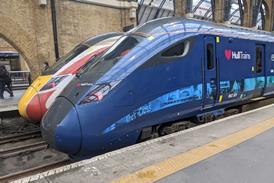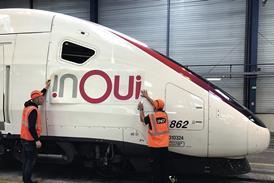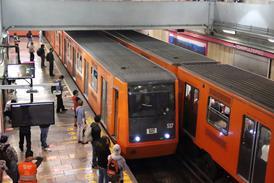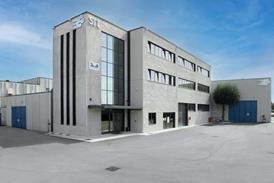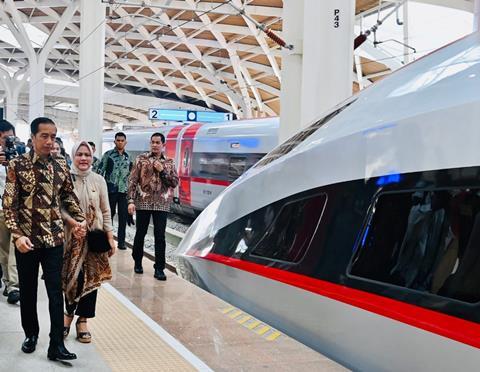
INDONESIA: The 142·3 km Jakarta – Bandung high speed line, now branded as Whoosh, was officially inaugurated by President Joko Widodo on October 2.
This follows the launch of a limited free trial service during September, which the President said would continue until the start of revenue services in mid-October.
He explained that the name Whoosh was inspired by the sound of a high speed train, and stands for waktu hemat, operasi optimal, sistem handal (‘Time saving, optimal operation, reliable system’).
Construction
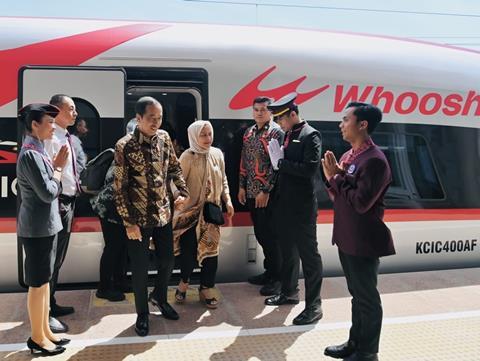
The president attended a groundbreaking ceremony for the project in January 2016.
A 50-year design-build-operate concession was signed in March of that year by the Ministry of Transportation and PT Kereta Cepat Indonesia China, a 60:40 Indonesian-Chinese consortium.
The opening date was set at May 31 2019, but slipped back several times.
The line was officially priced at US$5·1bn, with financing including a US$4·5bn loan from the China Development Bank. However local media suggest that the overall cost of the project has now increased by more than US$1·2bn.
Route
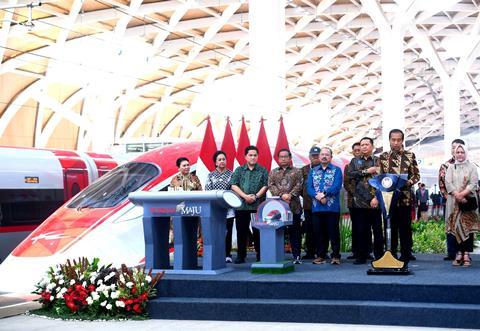
The 1 435 mm gauge line is built to Chinese standards for 350 km/h operation. It starts at Halim in the southeastern suburbs of Jakarta and runs to Karawang and then to Padalarang and Tegalluar in the greater Bandung area. Around 82·7 km of the route is elevated, and 16·8 km in tunnel.
CRRC Qingdao Sifang has supplied a fleet of 11 eight-car CR400AF Fuxing trainsets. A test train reached a top speed of 386 km/h during trial running in June.
‘Try new things’
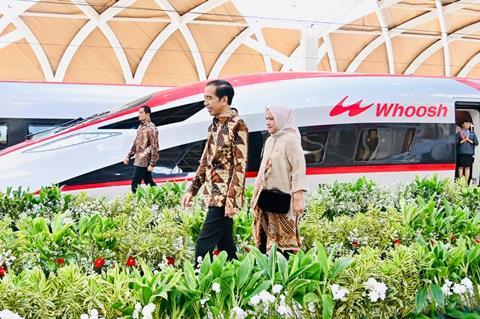
As part of the inauguration celebrations the President Widodo and his entourage travelled the length of the line in 29 min.
He said the line showed the government’s commitment to efficient, environmentally friendly and integrated public transport as well as transit-oriented development. He believed people should not be afraid to learn and to try new things when developing transport projects in the country, even if unexpected issues arise.
‘Experience is expensive, but very valuable and we don’t need to be afraid because if we are consistent, there will be fewer mistakes’, he said. ‘The costs of errors will also decrease and in the end production costs and project costs will also become lower over time.’
- Subscribers can read an in-depth article on the Jakarta - Bandung high speed line project from the March 2020 issue of Railway Gazette International.

